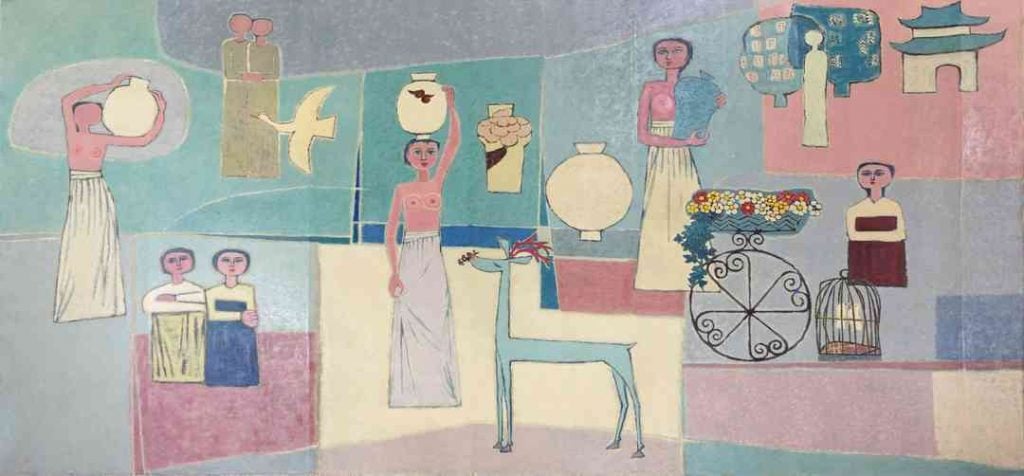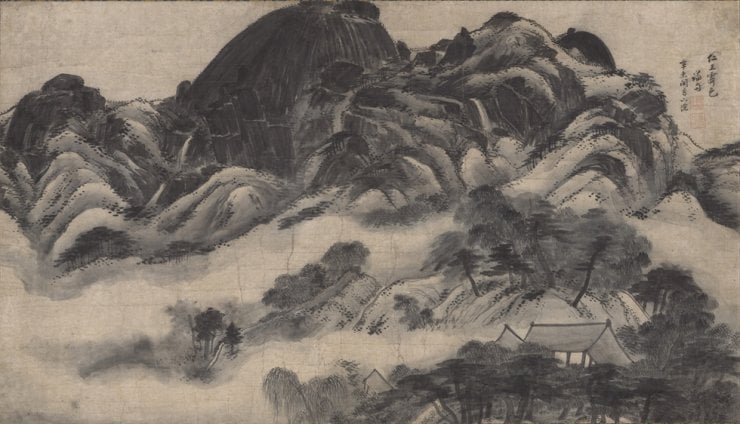On View
Works From the Fabled Collection of Late Samsung Chairman Lee Kun-hee Are Finally on Public View in South Korea
Two exhibitions in separate venues opened simultaneously in Seoul.

Two exhibitions in separate venues opened simultaneously in Seoul.

Artnet News

This week, the Korean public got its first chance to see a smattering of artworks from the multi-billion-dollar collection amassed by the late Samsung Group chairman Lee Kun-hee.
Two shows dedicated to Lee’s former possessions went on view at major venues in Seoul Wednesday, July 21. The events marked the first time that any pieces from his collection have gone on public display since being conferred to two institutions in April.
The National Museum of Korea unveiled a presentation of historical artifacts from the Lee collection, including 28 pieces designated by the state as National Treasures. The 77 objects on view represent just a fraction of the more than 21,600 items donated to the institution by Lee’s heirs.
Meanwhile, the National Museum of Modern and Contemporary Art (MMCA) opened an exhibition of 58 Modern and contemporary paintings and sculptures by 34 Korean artists selected from the almost 1,500 artworks gifted from the Lee collection.

Jeong Seon, Clearing after Rain on Mount Inwang (1751). Courtesy of the National Museum of Korea.
“We selected items that have artistic and historic value for this exhibition,” National Museum curator Lee Soo-kyung said during a press preview, according to the Korea Herald. “Our main purpose is to show the characteristics of Lee Kun-hee’s collection.”
On view in the two-month-long National Museum exhibition are rare examples of paintings, porcelain, metal statues, and wooden furniture dating from the prehistoric era to the early 20th century. The highlight of the group is Clearing after Rain on Mount Inwang, a 1751 landscape painting by Joseon-period artist Jeong Seo. It’s thought to be the Samsung chairman’s first major art purchase.
“A large part of the 1,488 artworks donated to our museum from Lee’s collection is Modern art, which our museum has a shortage of,” Park Mi-hwa, curator of the MMCA exhibition, explained in a preview of that institution’s show.
“Accordingly, for the first of our special exhibitions featuring the donated Lee collection, we selected Modern art pieces by Korea’s most popular artists.” Among those represented in the exhibition are landscape painter Byeon Gwansik, abstractionist Kim Whanki, and sculptor Kwon Jinkyu.
The historic gifts to the two museums this spring ended a months’-long debate about the fate of the more than 23,000 works of art following Lee’s death in October of 2020.
MMCA 이건희컬렉션 특별전: 한국미술명작
국립현대미술관 서울
2021. 7. 21. ~ 2022. 3. 13.MMCA Lee Kun-hee Collection: Masterpieces of Korean Art
MMCA Seoul
21. Jul. 2021 ~ 13. Mar. 2022 pic.twitter.com/gVnh6rQK2c— 국립현대미술관 (@MMCAKOREA) July 20, 2021
Media outlets had previously speculated that Lee’s heirs, including his son Lee Jae-yong and widow Hong Ra-hee, might sell some of the prized artworks to international buyers in order to cover the $11 billion (₩12.5 trillion) inheritance tax bill on the $20 billion (₩ 22 trillion) fortune the chairman left behind.
Ultimately, the heirs chose to keep the collection in the country, distributing its pieces among state institutions, including the National Museum, MMCA, and the Leeum Samsung Museum of Art.
But the artworks, owned by the state, won’t stay in these institutions for long. Earlier this month, the South Korean minister of culture, sports, and tourism, announced plans to build a new museum solely dedicated to the Lee collection.
Reservations to see the National Museum show are booked for the next month, a spokesperson for the museum told the Herald.
Tickets to see the MMCA show aren’t quite as hard to get. There, reservations are unavailable through early August, per Korea JoongAng Daily.